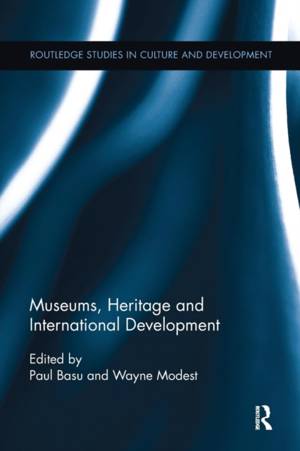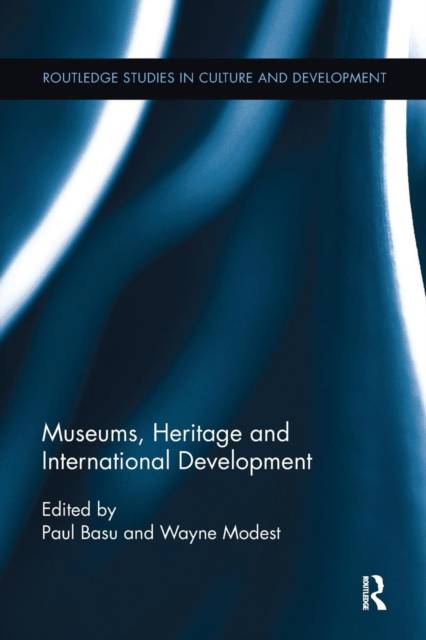
- Retrait gratuit dans votre magasin Club
- 7.000.000 titres dans notre catalogue
- Payer en toute sécurité
- Toujours un magasin près de chez vous
- Retrait gratuit dans votre magasin Club
- 7.000.0000 titres dans notre catalogue
- Payer en toute sécurité
- Toujours un magasin près de chez vous
Museums, Heritage and International Development
Description
While many claims are made regarding the power of cultural heritage as a driver and enabler of sustainable development, the relationship between museums, heritage and development has received little academic scrutiny. This book stages a critical conversation between the interdisciplinary fields of museum studies, heritage studies and development studies to explore this under-researched sphere of development intervention. In an agenda-setting introduction, the editors explore the seemingly oppositional temporalities and values represented by these "past-making" and "future-making" projects, arguing that these provide a framework for mutual critique. Contributors to the volume bring insights from a wide range of academic and practitioner perspectives on a series of international case studies, which each raise challenging questions that reach beyond merely cultural concerns and fully engage with both the legacies of colonial power inequalities and the shifting geopolitical dynamics of contemporary international relations. Cultural heritage embodies different values and can be instrumentalized to serve different economic, social and political objectives within development contexts, but the past is also intrinsic to the present and is foundational to people's aspirations for the future. Museums, Heritage and International Development explores the problematics as well as potentials, the politics as well as possibilities, in this fascinating nexus.
Spécifications
Parties prenantes
- Editeur:
Contenu
- Nombre de pages :
- 346
- Langue:
- Anglais
- Collection :
Caractéristiques
- EAN:
- 9781138244924
- Date de parution :
- 08-11-16
- Format:
- Livre broché
- Format numérique:
- Trade paperback (VS)
- Dimensions :
- 152 mm x 229 mm
- Poids :
- 476 g

Les avis
Nous publions uniquement les avis qui respectent les conditions requises. Consultez nos conditions pour les avis.





